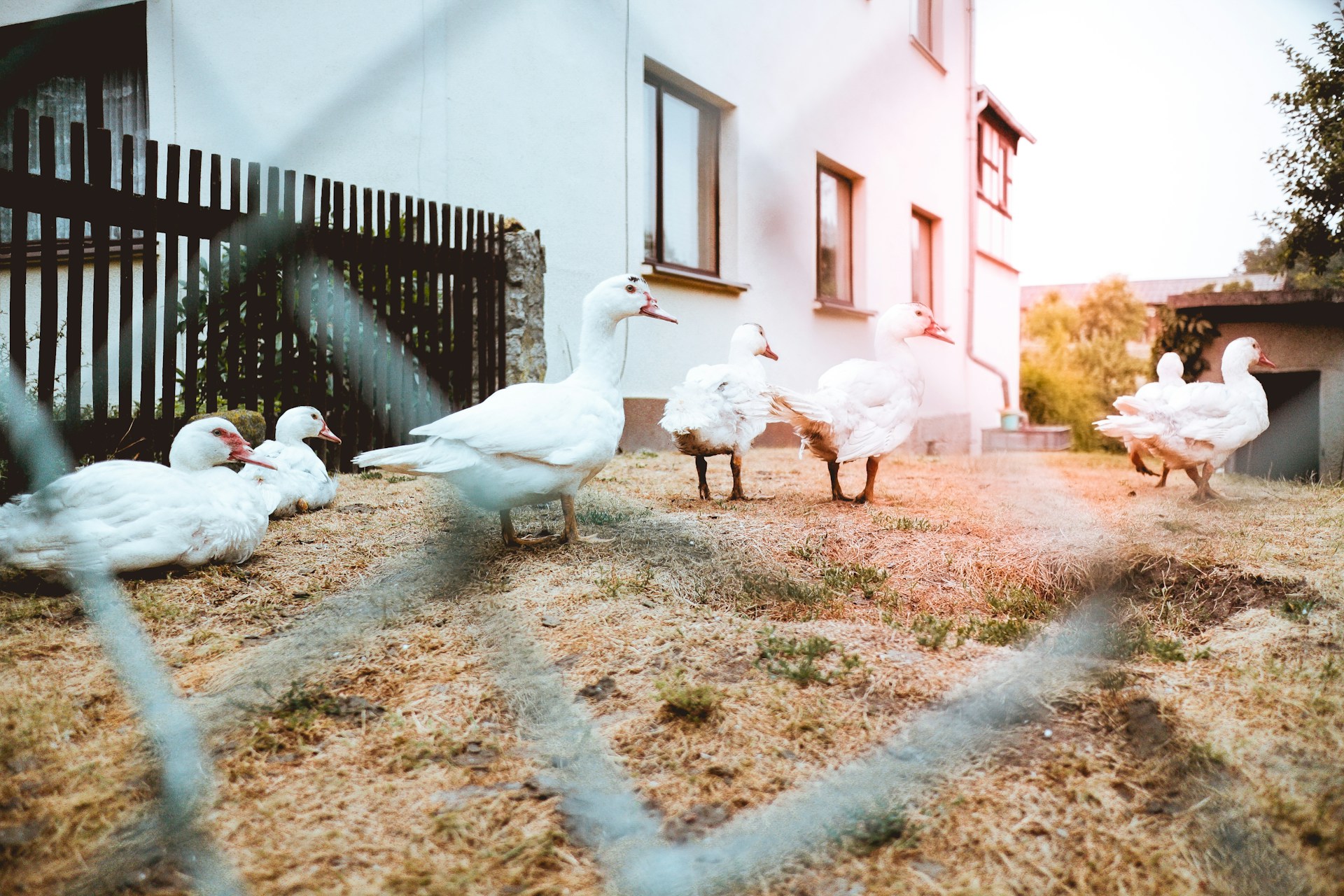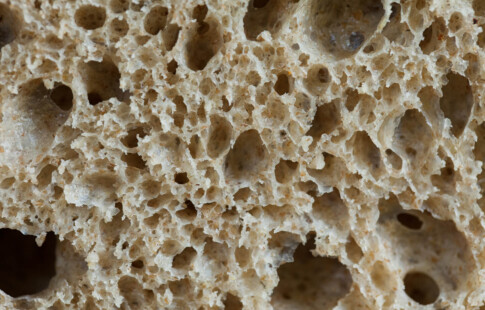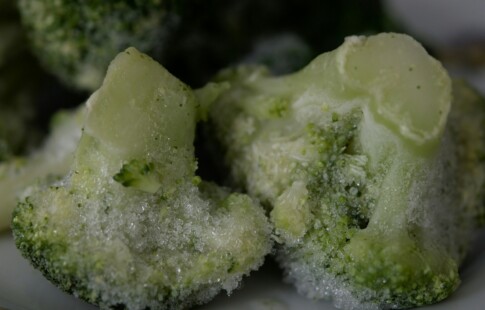
Your Quick Start Guide to Raising Ducks For Eggs
We are reader-supported. When you buy through links on our site, we may earn affiliate commission.
Raising ducks for eggs can be so simple and rewarding. The hens are easy to rear, requiring little effort beyond clean water and food. They’re also among the most sustainable small livestock you could keep on your homestead for a steady supply of tasty and nutritious eggs.
The Most Important Considerations When Raising Ducks for Eggs
If this is your first time venturing into poultry farming, no doubt you’ll have some questions about what you need to get started. Keep these essentials in mind.
Feed Needs
Ducks require a balanced diet to lay healthy eggs. While they can consume the same feed as chickens, they need a higher level of vitamin B3, also called niacin, to convert nutrients into usable energy. Ducks need three times more niacin than chickens.
A good commercial duck feed contains all the necessary nutrients. You’ll also want to supplement with fresh greens like kale, spinach and peas to keep the mama ducks healthy and happy. Remember to always provide clean water to help them digest their food properly and keep their bills clean.
Nesting
You’ll need to provide a suitable place for ducks to lay their eggs. Create a nesting area with soft bedding material, like straw or pine shavings. Keeping these nests clean and dry is essential to prevent molds, especially during the colder months. Wet or soiled nests can lead to fungi growths that cause aspergillosis, a potentially fatal respiratory infection.
Housing
A good duck house is dry, well-ventilated and protected from predators. It should also be spacious, measuring at least three feet tall, with operable windows, allowing you to open or close as needed, depending on the weather. The housing can be as simple or elaborate as you choose, but make sure it sits on a cement or wooden floor so badgers, snakes and other predators can’t dig underneath to gain access.
Outdoor Space
Ducks need access to a clean and secure outdoor area to forage for bugs and run around during the day. Keep this area fenced to keep predators out. More importantly, the outdoor space should have a pond for the ducks to swim in, as they often enjoy splashing and paddling around. A natural water source like a stream or a nearby lake is ideal, but a shallow artificial pool will also suffice.
Care
Supplementing natural daylight with artificial light during winter can help improve duck egg production and shorten the molting period. The molting process is when ducks replace their feathers — hens usually pause their egg-laying during this period. Also, ducks are social creatures, so raise them in groups, as isolation can stress them.
Collecting Eggs
Most ducks lay their eggs at night or just before dawn, so you’ll likely collect them first thing in the morning. Gathering them early on can help keep breakages to a minimum. Don’t disturb the ducks still laying when collecting eggs — come back a few hours later.
Clean the eggs immediately after collection to prevent microorganisms from penetrating the shell. However, don’t wash them, as it can remove the waxy covering over the shell. Simply wipe with a clean, damp cloth or lightly rub them with fine-grade steel wool to clear away any manure and dry mud.
What Are the Best Laying Duck Breeds?
Most duck hens will lay eggs even if they haven’t mated with a drake recently. However, some breeds are far better than others, especially if you need a year-round supply of large top-grade eggs.
When raising ducks for eggs, these are the best breeds to go for:
- Khaki-Campbells: These great layers can average up to 300 eggs per year. They’re also adaptable to various climates, making them a great choice for consistent production.
- Ancona: Besides being an excellent choice for egg production, Ancona ducks produce tasty quality meat. They’re also overly friendly and will likely get along well with other backyard animals.
- Indian Runners: Known for their upright posture, these ducks can produce over 350 eggs in a year.
- Pekin: This is one of the most popular duck breeds for both egg and meat production. Pekins are large and hardy, and their eggs are cherished for their size and rich flavor.
- Silver Appleyard: This beautiful, highly productive breed can average 220 – 265 eggs annually. The eggs often sport an exquisite shade of blue-green.
- Welsh Harlequin: These ducks are quite rare, so don’t expect to find them in just any hatchery. If you do get them, you’ll have a reliable layer capable of producing over 200 eggs in a year.
- Swedish: Known for its signature white feathered chest and blue-gray feathers, the Swedish duck is one of the most beautiful breeds. While they typically lay around 150 eggs a year, each can weigh up to eight Ibs, making them ideal for large-scale consumption.
- Magpie: These lightweight ducks are primarily bred for egg production. Magpie hens can lay roughly 290 eggs in a rich array of colors ranging from creamy white to blue and green shades.
When selecting ducks for egg-laying, consider their climate tolerance. Some breeds thrive in warmer climates, while others are better suited for colder environments, such as Muscovy ducks. Choose the ones that can handle the weather conditions in your area.
Marketing Duck Eggs
If you plan to sell the eggs produced by your ducks, you’ll need to know how to market them. Because of how ubiquitous chicken eggs are, there is a limited market for duck eggs at retail, even though they’re bigger, tastier and more nutritious.
One thing you can do is share recipes involving duck eggs. Talk about how they’re better for baking because of the larger yolk-to-white ratio and higher fat-protein content.
You can also work with chefs who make aioli or mayonnaise, highlighting how duck eggs provide a richer texture and a delightful creaminess to dressings.
Raising Ducks For Eggs
Ducks are truly an under-utilized animal on the homestead. Raising them for eggs can be an enjoyable and profitable experience. Remember to feed them well, house them properly and care for them to maximize egg production.
Share on
Like what you read? Join other Environment.co readers!
Get the latest updates on our planet by subscribing to the Environment.co newsletter!
About the author

Jane Marsh
Starting from an early age, Jane Marsh loved all animals and became a budding environmentalist. Now, Jane works as the Editor-in-Chief of Environment.co where she covers topics related to climate policy, renewable energy, the food industry, and more.





